
The Free Democratic Party is a liberal political party in Germany.

Roland Koch is a German jurist and former conservative politician of the Christian Democratic Union (CDU). He was the 7th Minister President of Hesse from 7 April 1999, immediately becoming the 53rd President of the Bundesrat, completing the term begun by his predecessor as Minister President, Hans Eichel, until his resignation on 31 August 2010. During his time in office, Koch was widely regarded as one of Chancellor Angela Merkel's main rivals within the CDU.

Christian Wilhelm Walter Wulff is a retired German politician and lawyer who served as President of Germany from 2010 to 2012. A member of the Christian Democratic Union (CDU), he previously served as minister president of the state of Lower Saxony from 2003 to 2010. He was elected to the presidency in the 30 June 2010 presidential election, defeating opposition candidate Joachim Gauck and taking office immediately, although he was not sworn in until 2 July. With the age of 51, he became Germany's youngest president.

The 2003 Lower Saxony state election was held on 2 February 2003 to elect the members of the 15th Landtag of Lower Saxony. The incumbent Social Democratic Party (SPD) majority government led by Minister-President Sigmar Gabriel was defeated. The Christian Democratic Union (CDU) came up one seat short of a majority, and formed a coalition with the Free Democratic Party (FDP). CDU leader Christian Wulff was subsequently elected minister-president.
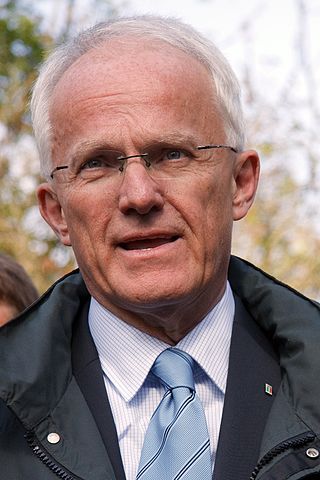
Jürgen Rüttgers is a German politician of the Christian Democratic Union (CDU) who served as the 9th Minister-President of North Rhine-Westphalia from 2005 to 2010.
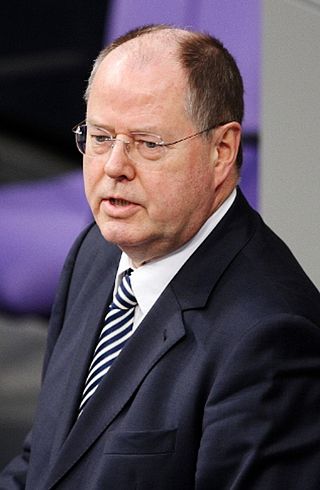
Peer Steinbrück is a German politician who was the Chancellor-candidate of the Social Democratic Party (SPD) in the 2013 federal election. Steinbrück served as the eighth Minister-President of North Rhine-Westphalia from 2002 to 2005, a member of the Bundestag from 2009 to 2016, and as Federal Minister of Finance in the first Cabinet of Chancellor Angela Merkel from 2005 to 2009.

Horst Lorenz Seehofer is a German politician who served as Minister for the Interior, Building and Community under Chancellor Angela Merkel from 2018 to 2021. A member of the Christian Social Union (CSU), he served as the 18th minister-president of Bavaria from 2008 to 2018 and Leader of the Christian Social Union in Bavaria from 2008 to 2019.

David James McAllister is a German politician who has been a member of the European Parliament since 2014. He is a member of the Christian Democratic Union, part of the European People's Party. He is the current Vice President of the European People's Party and he is also Vice Chairman of the International Democrat Union. He was appointed Chair of the European Parliament Foreign Affairs Committee in February 2017.

The 2008 Hessian state election was held on 27 January 2008 to elect the members of the Landtag of Hesse. The incumbent Christian Democratic Union (CDU) government led by Minister-President Roland Koch lost its majority. The result of the election was extremely close but inconclusive, with the CDU winning just 3,500 votes (0.1%) more than the Social Democratic Party (SPD). Due to the entrance of The Left to the Landtag, neither the CDU–FDP or SPD–Green bloc garnered a majority. After a year of failed attempts to form government, a new election was held.
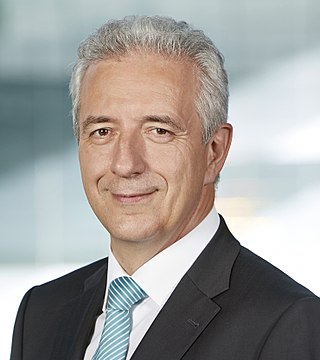
Stanislaw Tillich is a German politician of the CDU. He served as the 3rd Minister President of Saxony from 2008 to 2017. From 1 November 2015 until 31 October 2016, he was President of the Bundesrat and ex officio deputy to the President of Germany. Tillich is of Sorbian ethnicity and lives in Panschwitz-Kuckau (Pančicy-Kukow), which is 35 kilometres north-east of Dresden near Kamenz.

The Lower Saxon Landtag or the Parliament of Lower Saxony is the state diet of the German state of Lower Saxony. It convenes in Hanover and currently consists of 146 members, consisting of four parties. Since 2022 the majority is a coalition of the Social Democratic Party and the Greens, supporting the cabinet of Minister-President Stephan Weil (SPD).

An indirect presidential election was held in Germany on 30 June 2010 following the resignation of Horst Köhler as president of Germany on 31 May 2010. Christian Wulff, the candidate nominated by the three governing parties, the Christian Democratic Union, the Christian Social Union of Bavaria and the Free Democratic Party, was elected president in the third ballot. His main contender was the candidate of two opposition parties, the Social Democratic Party and the Alliance '90/The Greens, independent human rights activist Joachim Gauck.

The 2012 North Rhine-Westphalia state election was held on 13 May 2012 to elect the members of the Landtag of North Rhine-Westphalia. The incumbent minority government of the Social Democratic Party (SPD) and The Greens led by Minister-President Hannelore Kraft was returned with a majority and continued in office. The seat count drastically increased from 181 in the previous election to 237.

Stephan Weil is a German politician and the leader of the Social Democratic Party in Lower Saxony. On 20 January 2013, the SPD and the Green party won the 2013 Lower Saxony state election by one seat. On 19 February 2013, he was elected Minister President of Lower Saxony with the votes of SPD and Alliance '90/The Greens. From 1 November 2013 until 31 October 2014 he was President of the Bundesrat and ex officio deputy to the President of Germany. In November 2017, he was again elected Minister President with the votes of SPD and CDU.

The 2016 Baden-Württemberg state election was held on 13 March 2016 to elect the members of the 15th Landtag of Baden-Württemberg. The incumbent government of The Greens and the Social Democratic Party (SPD) led by Minister-President Winfried Kretschmann lost its majority.

The 2016 Saxony-Anhalt state election was held on 13 March 2016 to elect the members of the 7th Landtag of Saxony-Anhalt. The incumbent grand coalition of the Christian Democratic Union (CDU) and Social Democratic Party (SPD) led by Minister-President Reiner Haseloff lost its majority. The Alternative for Germany (AfD) debuted at 24.3%, with every other parliamentary party recording losses, particularly the SPD and The Left.
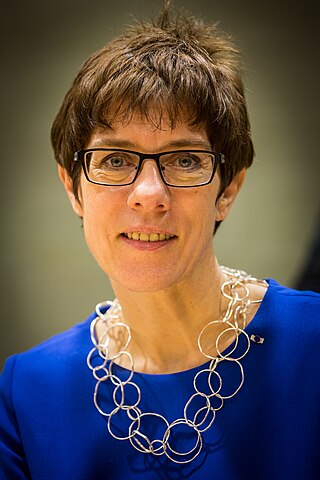
The 2017 Saarland state election was held on 26 March 2017 to elect the members of the Landtag of Saarland. The incumbent grand coalition of the Christian Democratic Union (CDU) and Social Democratic Party (SPD) led by Minister-President Annegret Kramp-Karrenbauer was returned with an increased majority.

Bernd Althusmann is a German politician of the Christian Democratic Union (CDU) who served as Deputy Minister-President and State Minister for Economic Affairs in the government of Minister-President Stephan Weil from 2017 to 2022.

The 2018 Hessian state election was held on 28 October 2018 to elect the members of the Landtag of Hesse. The outgoing government was a coalition of the Christian Democratic Union (CDU) and The Greens led by Minister-President Volker Bouffier.
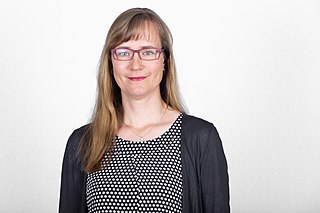
The 2021 Saxony-Anhalt state election was held on 6 June 2021 to elect the 8th Landtag of Saxony-Anhalt. The outgoing government was coalition of the Christian Democratic Union (CDU), Social Democratic Party (SPD), and The Greens, led by Minister-President Reiner Haseloff.

























